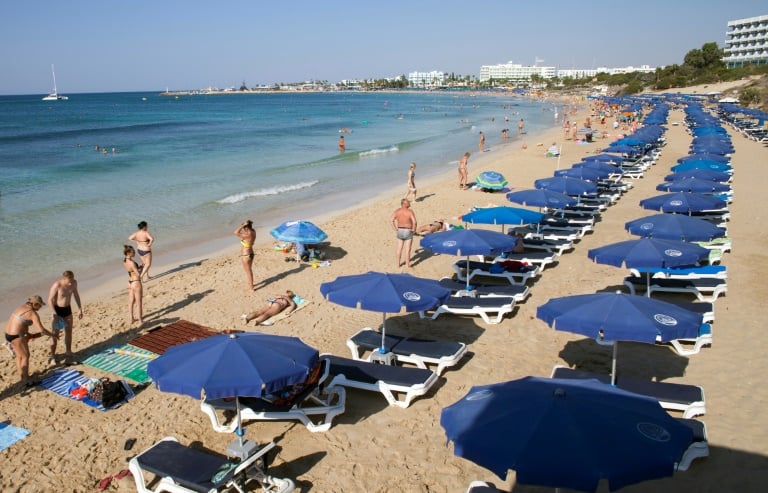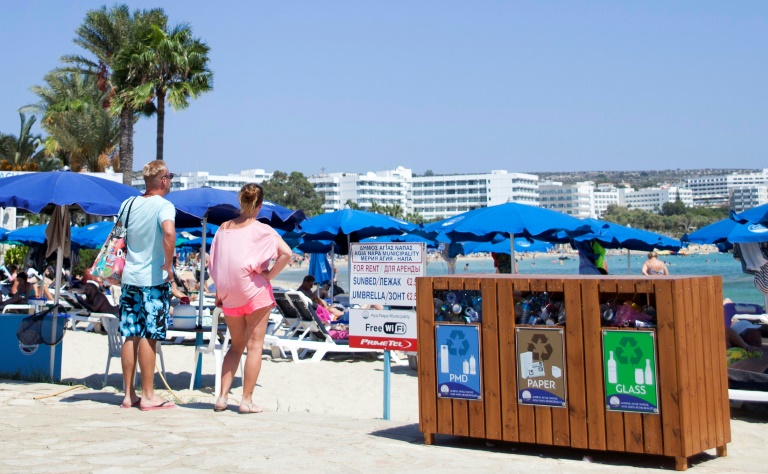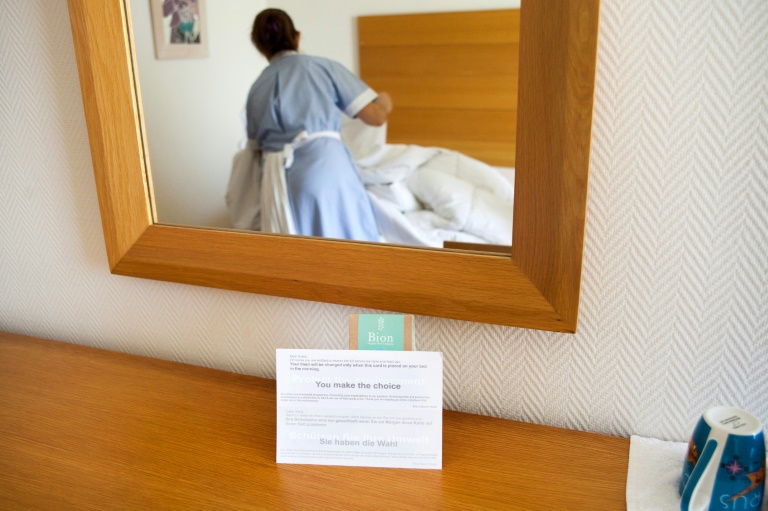What Freedom Day means to a young black businesswoman
With more visitors heading to Cyprus than ever, the Mediterranean island’s waste disposal system is under pressure, despite efforts to cut landfill use and encourage recycling, waste management and tourism, experts say.
Panicos Michael, manager of the five-star Alion Beach Hotel in Ayia Napa, said the rising number of visitors raised major issues.
“I think that this will be a big challenge for the island in general to cope with the increased amount of waste that’s going to be produced,” he said.
Cyprus — seen as a regional safe spot shielded from the unrest that has hit other popular Mediterranean destinations — hosted a record 3.2 million visitors last year and looks set to top that by eight percent in 2017, official figures show.
In response, authorities and tourism executives are backing efforts to separate waste and send as much as possible away from landfill sites and towards recycling.

Cyprus hosted a record 3.2 million visitors last year and looks set to top that by eight percent in 2017, official figures show
Cyprus landfilled some 79 percent of its municipal waste in 2013, according to the latest figure available on Eurostat, far above the European Union average of just 28 percent.
Michael said his hotel had cut landfill output per guest by half since it introduced waste separation in 2003.
The hotel divides glass, paper, plastic, metal, drinks cartons and other categories for recycling.
The Ayia Napa municipality aims to offer organic waste collection from hotels by spring 2018.
It has also installed recycling bins in visitor hotspots such as the waterfront directly below the Alion Beach Hotel.
Russian holidaymaker Helen Mikhaylenko, who works for an industrial equipment importer in Moscow, praised the scheme.
“People drink a lot of beer and they should divide,” the 23-year-old said in English, wearing sunglasses and a black bikini.
“It’s a very good idea because rubbish is one of the global problems and it is solved in Ayia Napa.”
– ‘Reduce, re-use, recycle’ –

Tourism and waste management experts say waste output per person in Cyprus is heavily inflated by tourist arrivals
Tourism and waste management experts say waste output per person in Cyprus is heavily inflated by tourist arrivals.
Kyriakos Parpounas of Green Dot, a waste management firm that deals with the vast majority of recycling in Cyprus, said tourists’ waste output was equivalent to adding 300,000 permanent residents to the country’s 866,000 population.
Cyprus has much improved its waste management since 2005, when Green Dot was founded in response to a new European Union law demanding better sorting and recycling, he said.
Green Dot has run a series of school and media campaigns encouraging Cypriots to “reduce, re-use and recycle”.
But the country still only recycles 19 percent of its waste, far lower than the European average of 44 percent.
“We began from scratch, there was no infrastructure,” Parpounas said. “There was no sorting on the island. There was no sorting culture at all.”
He was speaking at one of two Green Dot sorting warehouses in Cyprus.

A notice asks guests whether they want linens to be changed, at a five-star hotel in the resort town of Ayia Napa in south-eastern Cyprus
On a bleak industrial estate on the outskirts of Nicosia, it handles around half the island’s recycling, some 12 tonnes a day.
A digger shovelled mountains of refuse into a container where a rumbling conveyor belt heaved the waste into a warehouse nextdoor.
Around 15 workers stood at the belt, sorting plastic bottles and drinks cans and cardboard scraps into separate bins.
Warehouse manager Andreas Andreou said a fifth of the supposedly recyclable waste arriving at the plant still had to go to landfill because non-recyclable waste crept in.
The day before, workers had even found a dead dog.
Parpounas said more efforts were needed if the country was to meet the EU target of recycling half of its municipal waste by 2020.
“We are missing a lot of important tools that would actually drive people and create the culture of sorting,” he said.
– ‘Good business sense’ –
Green Dot presented a list of 10 demands to the government when it was set up in 2005.
Some 12 years later, seven have yet to be fulfilled, Parpounas said.
In particular, he urged the government to introduce a “pay as you throw” scheme to encourage sorting, and to introduce a landfill tax.
Environment department director Costas Hadjipanayiotou said the government was working to push people to recycle more but that the proportion of waste going to landfill was still “a huge number”.
“Cyprus is landfilling so much waste because… we are still late in establishing the appropriate infrastructure and cultivating the culture, but also the infrastructure is not in place,” he said.
Tourism officials say recycling efforts make economic sense.
Philippos Drousiotis, of the Cyprus Sustainable Tourism Initiative, said both hotels and guests had welcomed efforts such as cutting use of plastic bottles.
“The sustainable tourist is good for business,” he said. “It’s a good opportunity to reduce their costs.”
Muscovite holidaymaker Kate Tsurkanova, standing next to a beach near the centre of Ayia Napa, said she was pleased tourists could now separate their rubbish for recycling.
“It’s perfect, actually I have just started doing it myself in Russia,” she said. “I wish there were more bins like that everywhere.”
Download our app